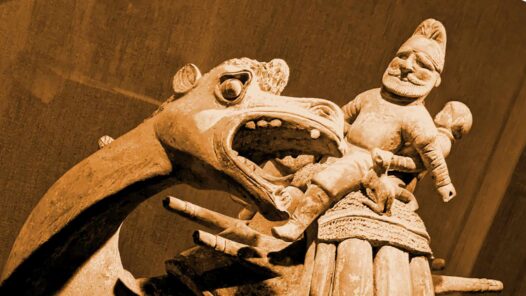For at least three centuries, declaring I’ll eat my hat! has indicated that the speaker is so certain they’re right, that if they’re not, they’re willing to swallow their chapeau. Variations of this phrase include I’ll eat my boots, I’ll eat my cap...
The phrase throw in the towel meaning “give up,” stems from boxing competitions in the late 19th. If a boxer’s team wanted to stop the fight—usually because their fighter was taking too much punishment—they would literally throw a towel into the air...
Words for “mother” begin with the letter M in many languages, but not all of them. The reason has to do with the physiology of infant vocalization. Among the first sounds babies make are bilabial sounds with an open vowel, the lips...
A baby’s first word is often a cherished milestone, but some cultures pay more attention to other firsts, like a baby’s first laugh. A fascinating new book by a linguist examines language at the beginning and the end of life. Plus, the...
The word larruping and its many variant spellings is often used to describe delicious food. The verb larrup means to “beat” or “strike,” and larruping (often spelled with the G dropped: larrupin’) is used as an intensifier...
Why do we write the sound of a dog barking as bow wow? Isn’t that noise more like woof, woof or arf, arf or ruff ruff? Surprisingly, the oldest of these is bow wow, or as William Shakespeare wrote in The Tempest (Bookshop|Amazon), bowgh wawgh...







